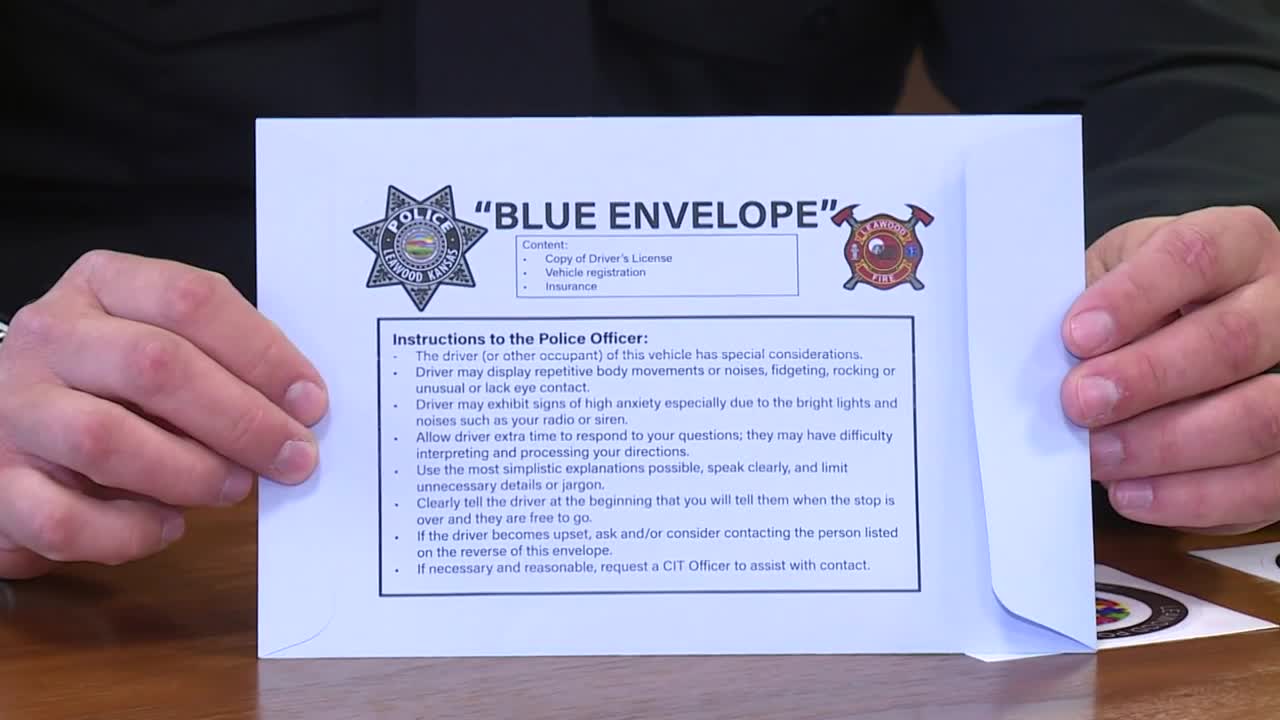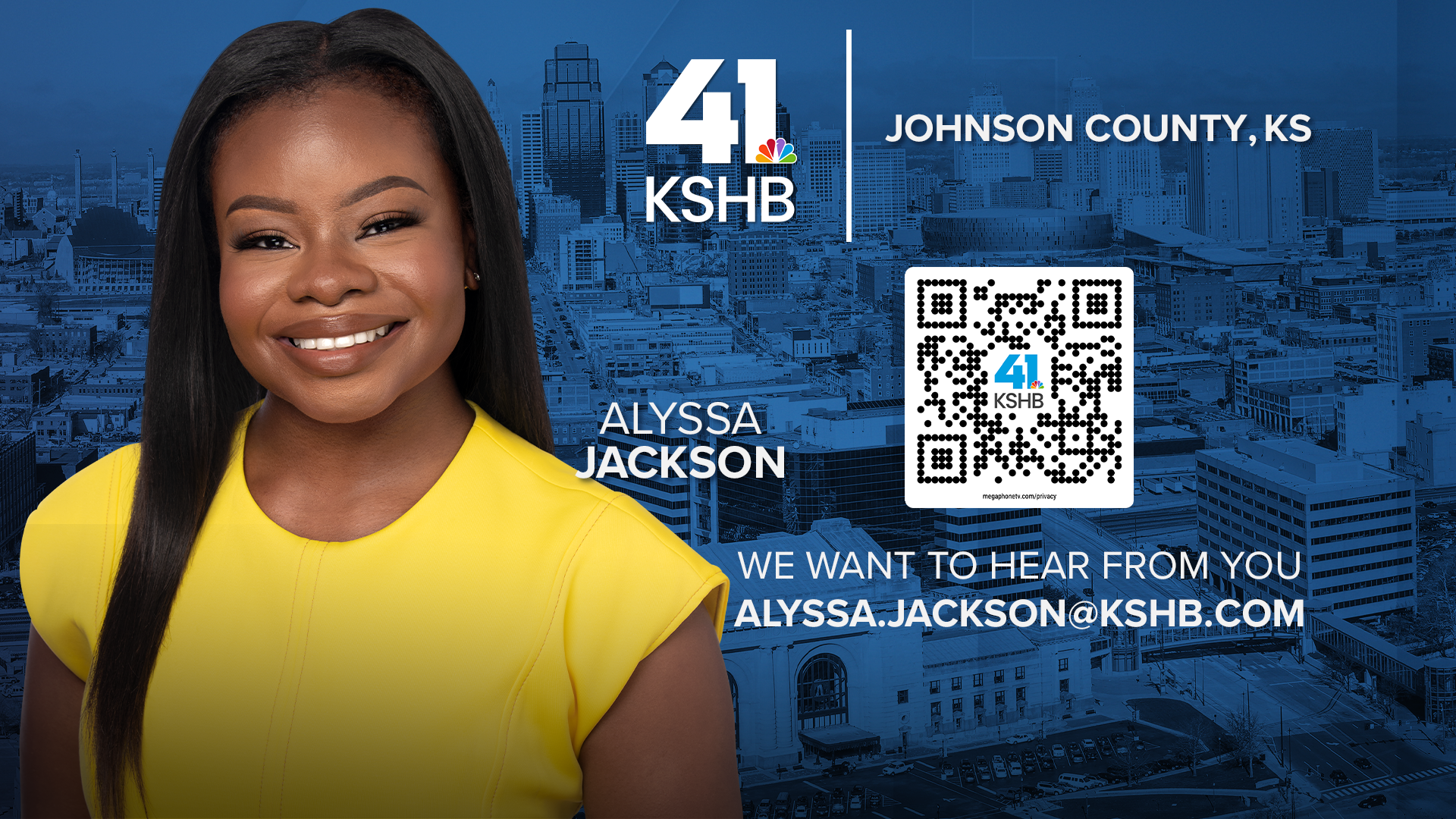KSHB 41 reporter Alyssa Jackson covers portions of Johnson County, including Overland Park, Prairie Village and Leawood. Share your story idea with Alyssa.
—
A nationwide effort to improve how officers communicate with a person diagnosed with a disability has made its way to Johnson County. The new resource, called "The Blue Envelope," doesn't have to leave your car.
The Blue Envelope Program, an initiative originating in Massachusetts, helps improve how law enforcement communicates and interacts with drivers or passengers who have a disability.
The envelope lists several signs officers should be aware of, including repetitive body movements, high anxiety, trouble processing directions, and suggests how they can handle certain situations.
It also tells the individual with a disability how to interact with the officer, including keeping their hands on the steering wheel, being aware of flashlights or a loud radio, and informing the officer of the blue envelope.

An individual can use it to store a copy of their car insurance and vehicle registration. They'd hand the envelope to the officer.
Ten cities in Johnson County already have the program.
In Leawood, an individual with autism, Tourette syndrome, or medical complications can check a box with their diagnosis.
Passengers who may struggle with limited vision or who are considered deaf/hard of hearing can also fill out the form.
Whit Downing moved from Topeka less than a month ago and KSHB 41's Alyssa Jackson found her through the Mission Project.
The Mission Project supports adults with intellectual and developmental disabilities (IDD).
"I was sitting in the parking lot counting cars because that calmed me down, but an officer saw that as suspicious. He came over to me, and I was already very escalated, which is why I was in the parking lot counting cars as they drove by," she said.
Downing continued, "When the police officer came, I, at that point, was having a huge meltdown...he called for back up, and it was a really scary experience for me."
Downing has been driving since she was a teenager.
She hasn't always known what to expect if she's approached by an officer, but she has a vivid memory of her interactions.
"That first initial interaction with law enforcement. I didn’t have any wallet card or words to say 'Hey, I'm autistic'. All I had was the meltdown I was experiencing."
Downing has since had many positive interactions with police officers. She made friends in the Topeka Police Department before she moved.
"What has helped me in my interactions with police officers is when they're kind to me and tell me what to expect. I’ve had an officer walk circles with me around the driveway until I was calm," she said.
After the negative experience, she keeps cards in her wallet that tell an officer about how her disability impacts social cues.
KSHB 41's Alyssa Jackson also told her about the Blue Envelope Program.
"It's something I think every police department should adopt because little do you know — some autistic people do drive," Downing said.

Leawood Police Officer Tommie Eisenhut was a big advocate for bringing the program to his department.
"I have a son, an adult son with disabilities," he said. "If I’m ever driving him and I get into a crash where I am injured or incapacitated and can’t respond, the envelope will be in the glove box for first responders."
There are officers in the Leawood Police Department who are trained to spot signs of someone who may be diagnosed with a disability.
According to Leawood PD, 75% of the staff are Crisis Intervention Trained (CIT), including dispatchers.
An additional 17% of its staff have taken the Mental Health First Aid training.
CIT is specifically designed to train officers on how to handle a mental health crisis.
"Some of the signs or symptoms could be misinterpreted. We're taught from the very beginning of police academy to be aware of the signs and behaviors of someone impaired by drugs or alcohol. Sometimes, some of the mannerisms may look like that," Eisenhut said.
Eisenhut hopes the program will eventually become a nationwide standard.
Blue envelopes are currently available for pick up at the Leawood Police Department during business hours.
"We're all human. The last thing I want to be is another statistic of a person of color with a disability becoming a victim of police brutality," Downing said. "The more prepared we can be as autistic people and the more prepared police officers can be, the better the outcome will be."
—





